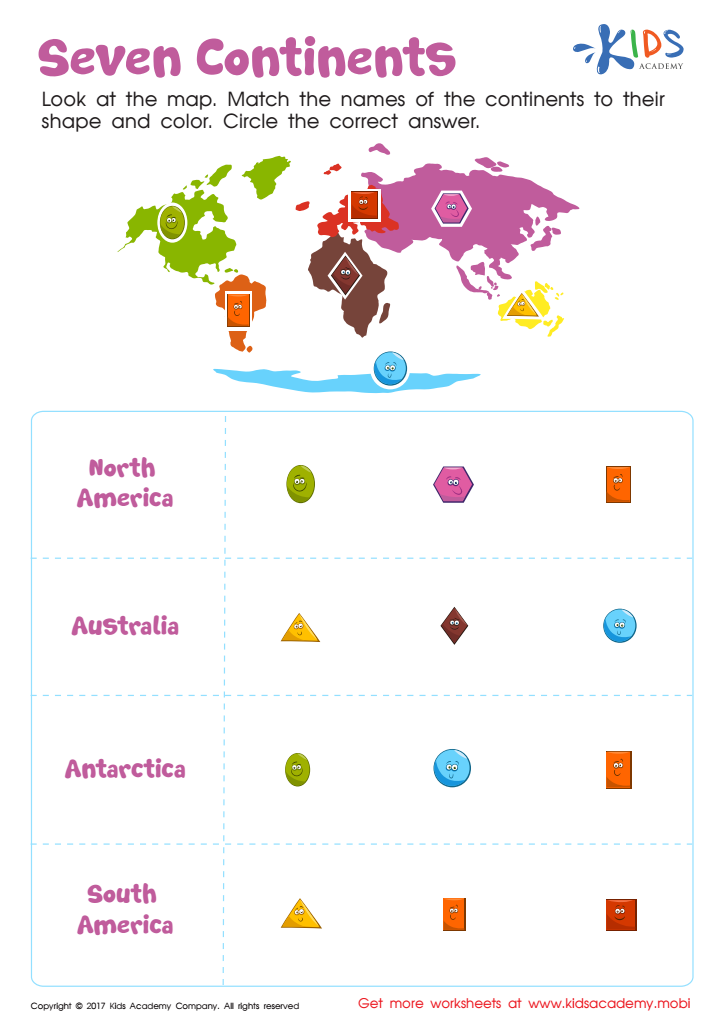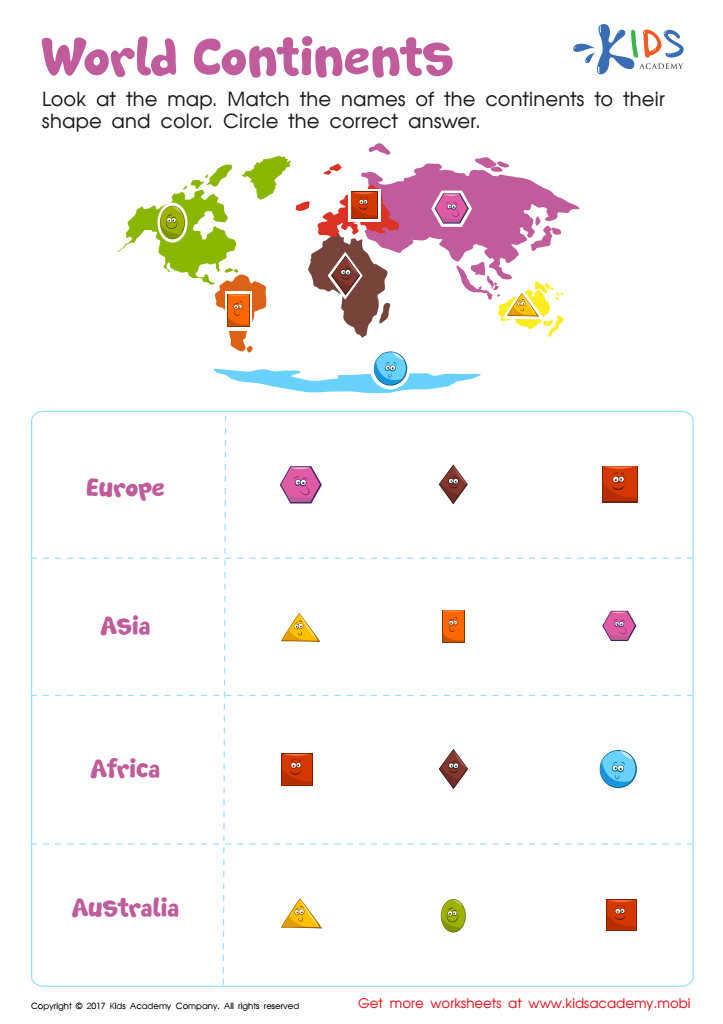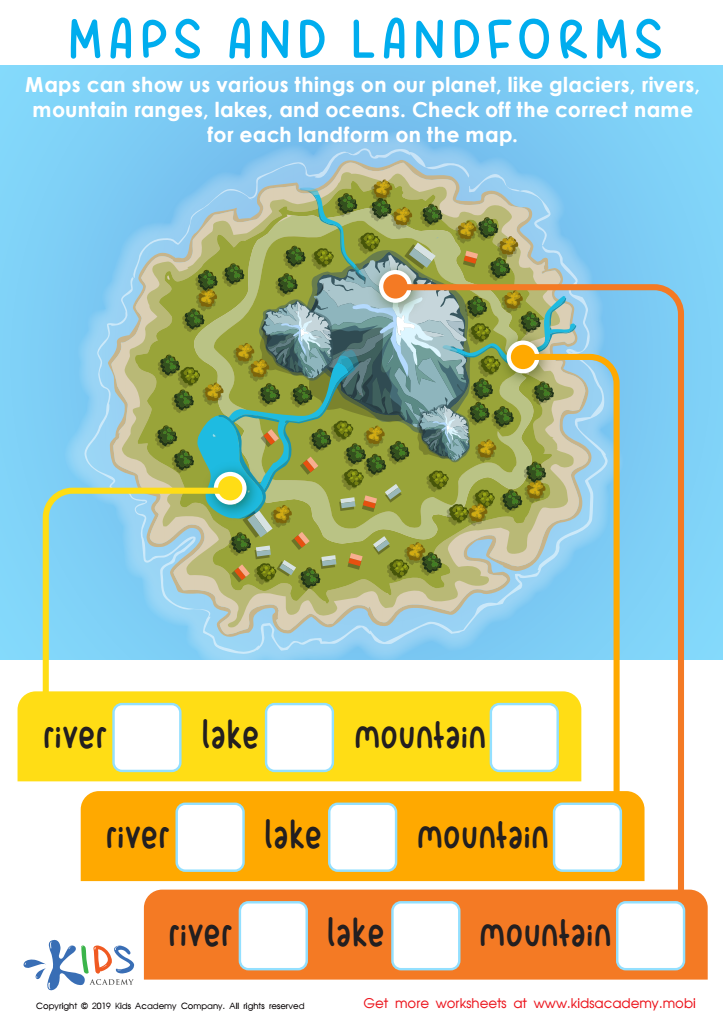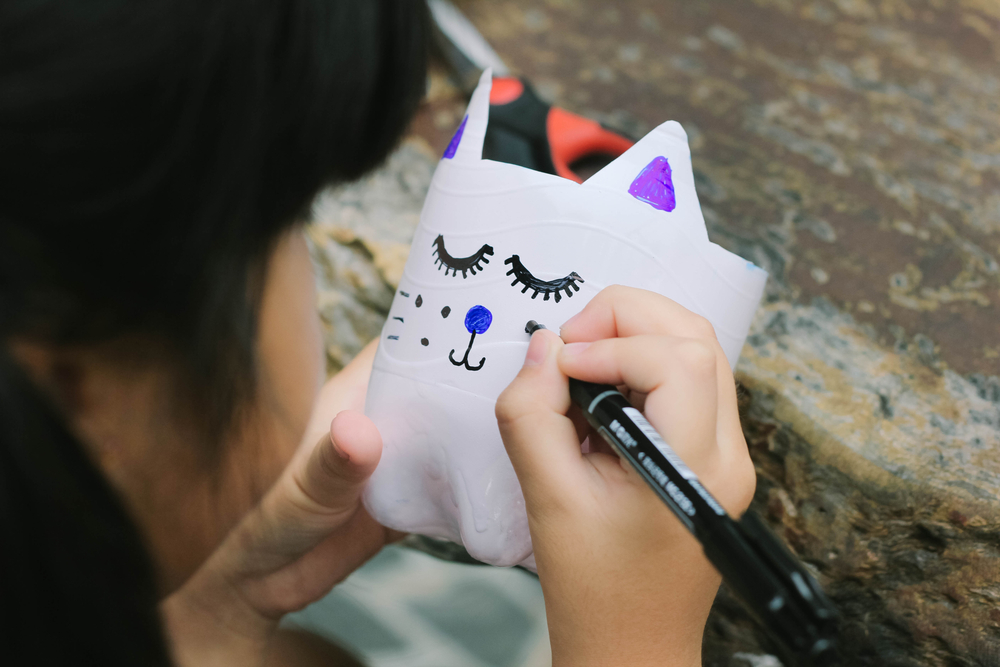Map reading skills Normal Our Planet and Environment Worksheets for Ages 4-7
3 filtered results
-
From - To
Enhance your child's map reading skills with our engaging "Map Reading Skills: Our Planet and Environment" worksheets, tailored for ages 4-7. These interactive resources are designed to make learning about maps fun and accessible. Each worksheet encourages young learners to explore various environmental themes while developing essential navigational skills. With colorful illustrations and age-appropriate activities, children will practice identifying symbols, understanding directional concepts, and recognizing landmarks. These foundational skills are crucial for fostering spatial awareness and fostering a love for geography. Perfect for home or classroom use, our worksheets provide a wonderful opportunity to connect kids with the world around them!


Seven Continents Worksheet


World Continents Worksheet


Maps and Landforms Worksheet
Parents and teachers should prioritize map reading skills for children aged 4-7 as these skills lay the foundation for spatial awareness, critical thinking, and problem-solving abilities. Understanding maps enhances children's ability to navigate their environments and fosters a sense of independence. At this age, children are naturally curious, making it an ideal time to introduce concepts about our planet and the environment through engaging activities like exploring maps.
Map reading also supports understanding geography, helping children appreciate the diversity of landscapes, cultures, and ecosystems. When children learn to interpret symbols and legends, they become better equipped to analyze and comprehend information in many contexts, including science and social studies. Furthermore, utilizing maps can encourage teamwork during group activities, promoting collaboration and communication among peers.
Incorporating themes of sustainability and environmental stewardship into map activities enriches children's learning experience, prompting them to consider human impact on our planet. Ultimately, teaching map reading skills at a young age empowers children to become informed, responsible individuals who can navigate their world and contribute positively to their communities. By focusing on these skills, parents and teachers are not only enhancing literacy but also creating conscientious future citizens.
 Assign to My Students
Assign to My Students














